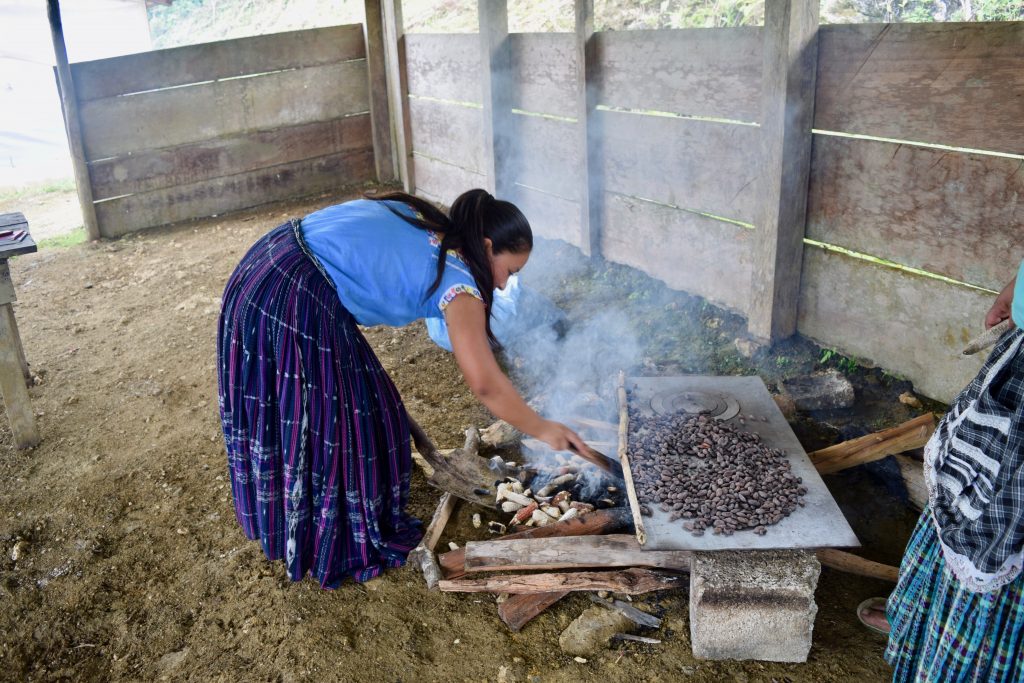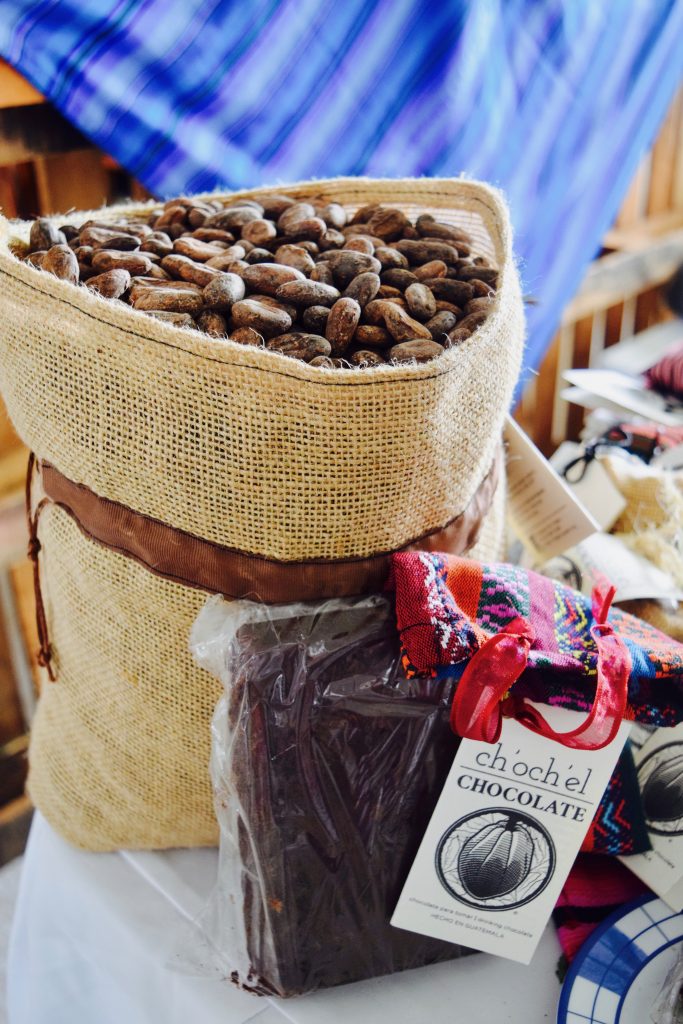Cultivating Women’s Leadership in Cacao Production, Processing and Marketing
This article in brief:
- While cacao is a high-value crop in Guatemala, indigenous leadership of an export enterprise is rare, and indigenous women’s leadership is even more scarce.
- The Inter-American Foundation (IAF), a Feed the Future partner agency, works with Guatemalan subsistence farmers and a women-led cacao and chocolate producers’ group to increase their incomes and strengthen food security.
- IAF grantee ProPetén is empowering indigenous women and providing farmers with training, programs and support in planting, harvesting and selling cacao to help communities thrive.
In Guatemala, the indigenous Q’eqchi’ historically used cacao, a sustainable and high-value export crop, as currency within their culture. Today, cultivating it provides an alternative to traditional subsistence and low-value agriculture, like corn and beans – crops that have become difficult to grow due to deforestation.
After learning of the success of a pilot cacao project in a neighboring community, three majority indigenous community groups of women in the Petén region of Guatemala sought to plant and harvest cacao, but they struggled to find funding to get started. Seeking support for their women-led groups, community members approached ProPetén, a nonprofit in Guatemala that promotes smallholder agriculture and food production to enhance food security and ensure meaningful opportunities for communities and women to thrive.
In a region where indigenous leadership of an export enterprise is rare, and where indigenous women’s leadership is even more scarce, Inter-American Foundation (IAF) grantee ProPetén is committed to training its Q’eqchi’ women and cacao producers in the skills they need to succeed in a complex marketplace. Moreover, these programs are empowering women like Teresa Cho, a teacher, who is now supplementing her income with cacao production to better provide for her family.

Photo by ProPetén
Empowering Indigenous Leaders
ProPetén works on the ground with isolated communities in Guatemala to host trainings and sessions for indigenous women farmers to learn how to increase their incomes, implement best practices in natural resource and biodiversity management and promote cultural preservation. The program also includes training in Spanish, business administration and financial management.
“We are helping to develop the entire cacao supply chain, from inputs, production and post-harvest to marketing,” said Rosa Irene Contreras, ProPetén’s executive director. “We’ve reached an important point where women have become very involved in the entire project, and they are already capable of processing cacao.”
ProPetén and the community-level cacao associations also incorporate women at all levels of the decision-making process and create jobs for the women in processing and selling chocolate made from the cacao.
This season, Cho helped process more than 300 pounds of chocolate. In 2019, she worked as a teacher and earned $200 – in the same year, she made an extra $150 through cacao production.
Cho’s earnings made a significant difference in her family’s income and food security. Women typically spend what they earn on food, medicine and clothing for their families, while also improving their homes.
Creating Profits through Cacao
ProPetén provides the farmers with advice on planting, harvesting and selling cacao – a product with high demand both locally and internationally – through a women-led cacao and chocolate producers group in Guatemala. The group sells their harvests to local hotels, restaurants and souvenir shops.

Photo by ProPetén
Farmers learn how to prepare the soil on plots of land provided by community members, make and use organic fertilizer, avoid pest infestations, and strategically locate shade plants to protect cacao seedlings from the harsh sun. Through Feed the Future’s support, the farmers also have access to the fermenters, dryers and storage facilities needed to process the cacao to sell.
With a grant from IAF, ProPetén also supplies indigenous groups with cacao seeds, shade plants and other materials and helps them manage their sales revenue to make their cacao production financially sustainable. This support empowers these groups to eventually become independent organizations capable of seeking funding and implementing initiatives on their own.
In an area where almost half of the population lives on less than $2 a day and basic food security can be a challenge, this income provides a sense of hope and stability:
- In 2019, farmers participating in ProPetén’s initiatives harvested more than 28,000 pounds of cacao, totaling about $11,000 in revenue.
- In 2020, this dried cacao helped around 75 families earn a total of $4,000 to date – a meaningful amount to families living in extreme poverty.
ProPetén aims to establish a strong cacao agribusiness in Petén that has a social, economic and environmental impact at the national and international levels. In doing so, it is offering low-income communities a model of sustainable development and promoting indigenous women’s leadership in Guatemala. And to empower the community to overcome challenges posed by COVID-19, ProPetén is using and disseminating personal protective equipment to continue to train farmers. It is also helping farmers access organic fertilizers and materials, to make biofertilizers, so they can improve their cacao production and speed recovery from COVID-19 with future incomes.
Stay connected: Sign up to receive the latest information on the global effort to #endhunger.
